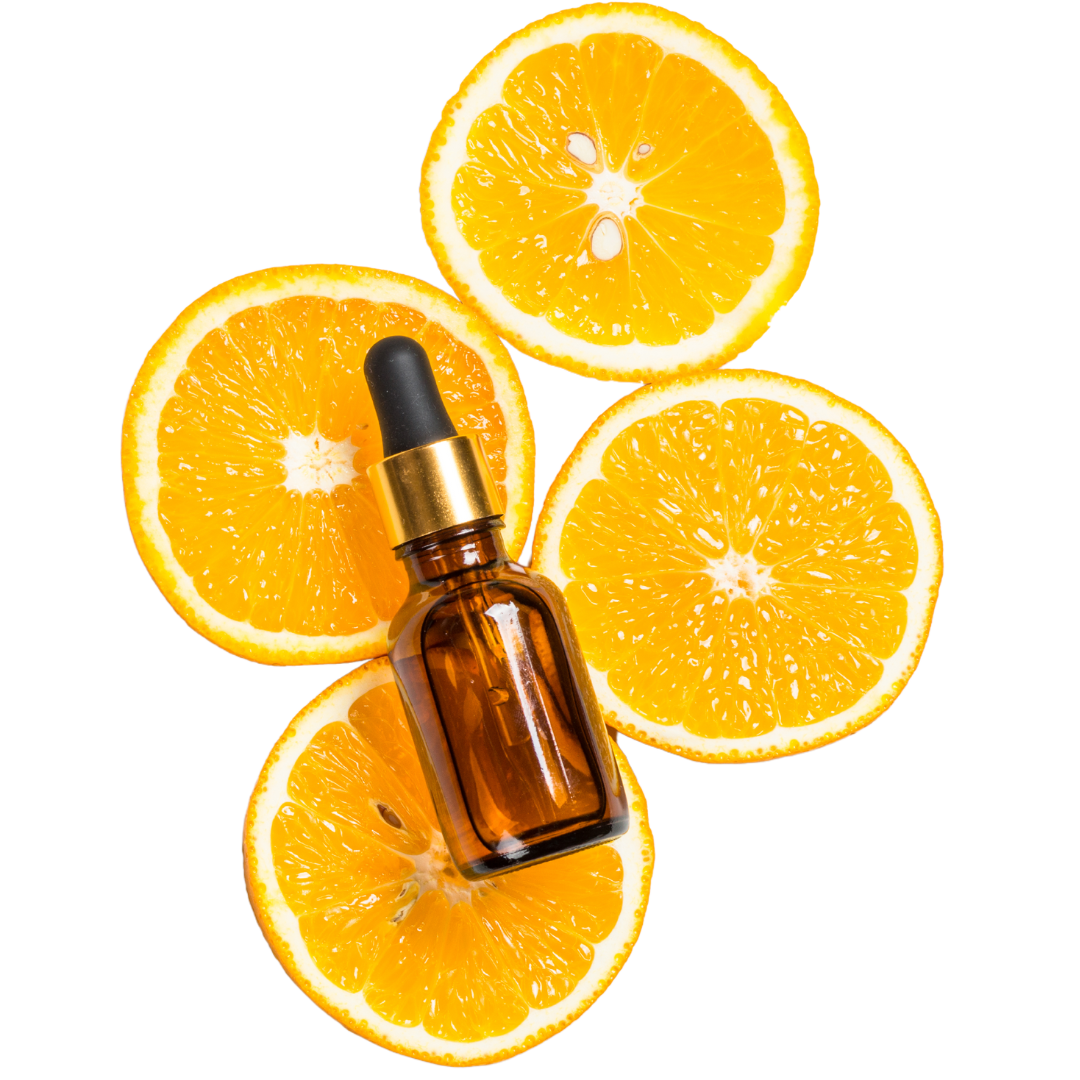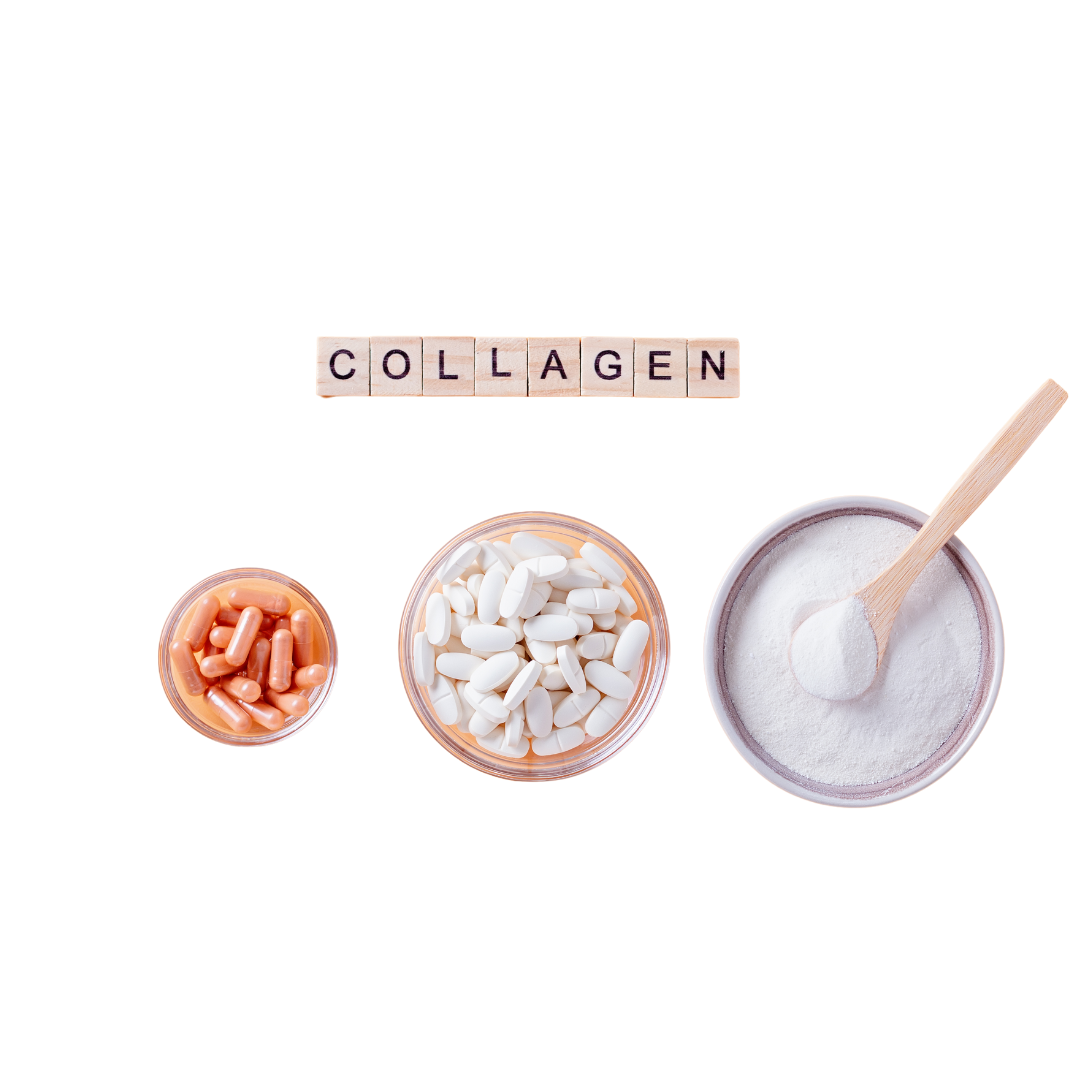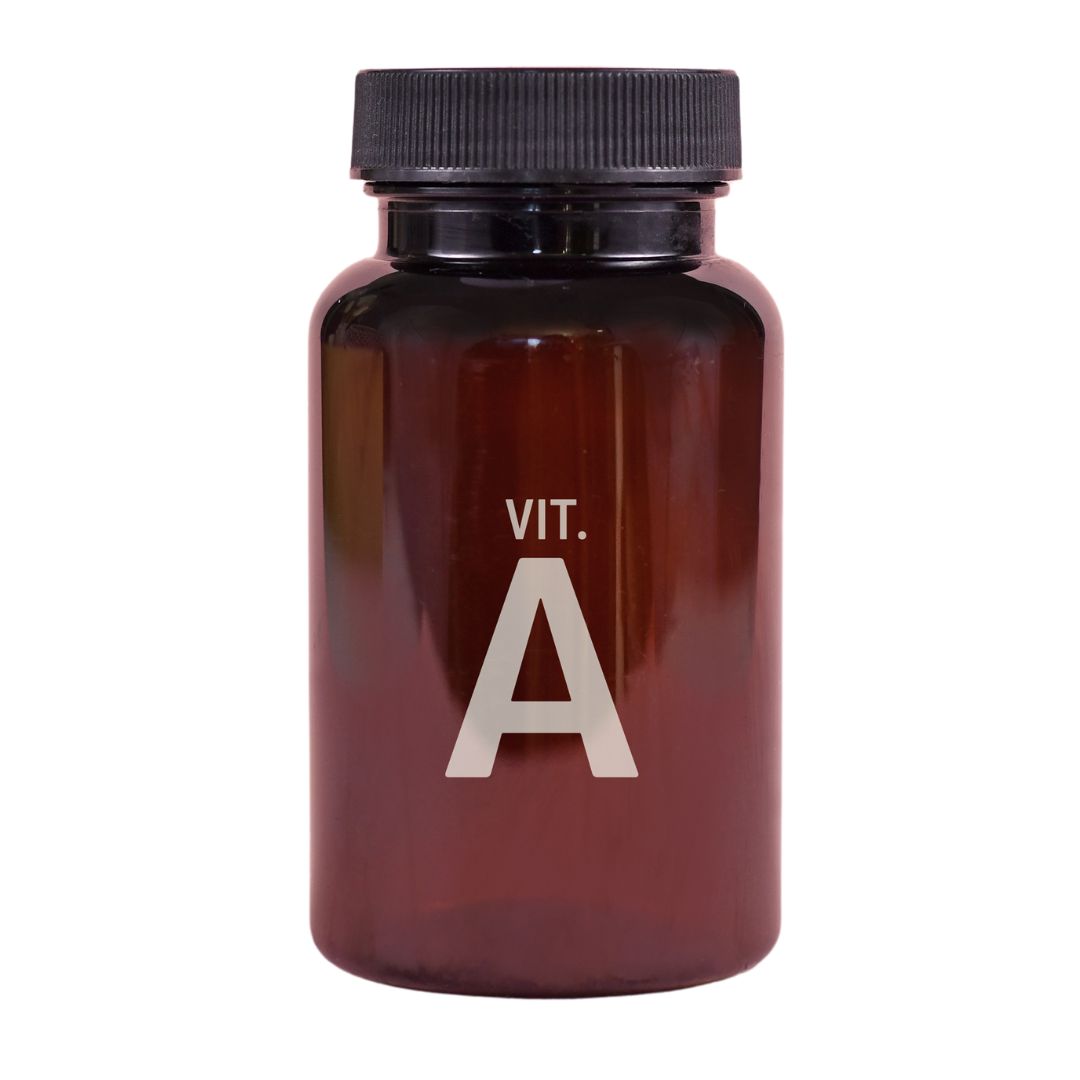Sunflower MediSpa
the sunflower Scoop
What is the best vitamin for your skin?
When asking this question of clients or in group settings, the most common answers we hear are Vitamins C, D and E. Let’s discuss what each of these vitamins do for the skin and, most importantly, the Vitamin you need to focus on most when it comes to the health of your skin.
What does Vitamin C do for your skin?
Vitamin C is a powerful antioxidant that plays an important role in strengthening our collagen fibers and the formation of elastin, both of which contribute to firmer, smoother, and more youthful skin. Additionally, because melanin production is an oxidative process and Vitamin C is a powerful antioxidant, it inhibits the production of melanin, aiding in the treatment of hyperpigmentation and sun damage.
Our bodies do not produce Vitamin C on their own so we must obtain it either through food, oral supplementation, or topical forms to prevent deficiency. We lose vitamin C when we are exposed to heat and UVA light, meaning we are constantly depleting and should be replenishing our Vitamin C stores daily.

What does Vitamin D do for your skin?
Vitamin D, an essential nutrient needed for our overall health, plays a large part in reducing photodamage in the skin and acts as a natural sunscreen to some degree. Adequate levels of Vitamin D can reduce inflammation, support healthy cell turnover, aid in the prevention of skin cancer, and reduce signs of visible aging. Additionally, Vitamin D promotes wound healing and tissue repair, both essential in treating existing skin conditions and improving overall appearance.
More importantly, deficiency in vitamin D may contribute to various skin conditions including vitiligo, psoriasis, skin cancer, eczema, acne, and rosacea. Vitamin D can be restored through supplementation or through exposure to sunlight in regulated doses, of course, to prevent sun damage. The use of SPF may slightly lower the amount of Vitamin D absorbed in the skin, but the benefits of using daily SPF far outweigh the risk. It is always advised to use an SPF daily and to reapply frequently when in the sun for extended periods of time.

What does Vitamin E do for your skin?
Vitamin E, another antioxidant, acts as an anti-inflammatory agent in the skin. It protects against UV radiation and other free radicals and is most effective when applied topically. The most known benefit of vitamin E pertaining to skin health is that it can improve the skin’s ability to retain moisture, resulting in soft, supple skin. Because it protects the skin from the inflammatory response of UV exposure, it can also reduce swelling and redness. Vitamin E is depleted by light and is in constant need of replenishment, particularly for those who spend a great deal of time outdoors.
BONUS TOPIC: What does Collagen do for your skin?
While collagen isn’t a vitamin, we wanted to touch on this as well, particularly with Collagen supplementation becoming increasingly popular. Collagen is the most abundant protein in the body and is the primary building block of the skin. The Thicker and stronger our collagen is, the firmer and plumper our skin!
We all lose collagen as we age, and the collagen we have becomes weaker and begins to break down with time. Poor diet can also contribute to the faster breakdown of collagen in the body, speeding up signs of aging. It is for this reason that we support Collagen supplementation, when done correctly.
When researching brands and types of collagen supplementation (or any supplementation for that matter) we don’t recommend going with the cheapest option. Supplements are not regulated by the FDA and are, therefore, an easy target for those looking to pull a fast one on consumers. Additionally, low-grade collagen peptides can be quite unpleasant when it comes to taste!
What to look for in a Collagen Supplement for your Skin:
Type: Type I collagen and Type III Collagen are best suited for skin health, whereas Type II collagen supports joint and bone health. Look for a supplement containing 90% or more of Type I Collagen, otherwise known as “Beauty Collagen”, and some Type III collagen to support it.
Form: Collagen Supplements come in many forms – Topical, Pill, Powder, and Liquid.
Topical Collagen may seem like the simplest route; however, collagen molecules are simply too large to be absorbed beyond the top layer of the skin, resulting in nothing more than a moisturizing effect.
Pills are convenient but offer only a small amount of collagen per pill which resulting in the need to either take a handful of pills each day, or accept that you are receiving less collagen and, therefore, decreased results.
Powder and liquid forms are your best bet for getting the supplementation you are looking for to boost the collagen in your skin.
Source: The best Collagen supplements are sourced from grass-fed, pasture-raised animals or wild-caught fish. They should also be free of fillers and additives. Brands that are transparent about their sourcing can provide peace of mind that you are receiving what the package claims is inside.

What Vitamin does your skin need most?
As discussed, Vitamins C, D and E are all important when it comes to the health of your skin – but there’s one vitamin that doesn’t get the credit it deserves and is often misunderstood. Vitamin A.
Vitamin A, also an antioxidant, is the dominant molecule in the Skin. Essentially, it’s the manager — the boss. It tells all the other molecules what to do. With adequate levels of Vitamin A, our skin can do its job, regulating oil production, melanin production, collagen production, and elastin production. Regardless of which skin concern you are trying to resolve, Vitamin A is the answer! If you have dry skin, you either need to produce more oil, or improve your skin’s ability to retain moisture. If you have oily skin or acne prone skin, you need to regulate the oil production in your skin. If you have redness or sensitivity you need to strengthen your skin barrier and reduce inflammation. With enough Vitamin A, your skin’s leader can properly instruct all the molecules to function as they should, effectively preventing further damage and working to heal the damage that has already been done.
Vitamin A has a bad reputation due to the fact that, like Vitamin D, it is fat soluble. This means our bodies cannot flush out excess amounts if we consume too much. However, like Vitamin D, we are constantly losing Vitamin A through exposure to light (indoor and outdoor) and would have a difficult time overdosing without some very deliberate over-supplementation practices. Not to mention, it would be very difficult to get adequate levels of Vitamin A through food alone, so the vast majority of us need some form of supplementation.
That said, we always advise consulting with your physician before adding any oral supplementation to your diet. When it comes to the skin, we highly recommend, at minimum, using a topical application of Vitamin A, which is also much less likely to result in an overdose.
Here’s the catch – Not all topical Vitamin A products are created equal. Precisely how you get Vitamin A into your skin is a very important factor.

What is the best way to get enough Vitamin A for your skin?
Without diving too deep into the science, Vitamin A comes in various forms – all of which ultimately convert to Retinoic Acid, the form of Vitamin A your skin uses to produce the benefits discussed. This may lead one to believe that applying straight retinoic acid, in topical form, is the most effective method.
Some of the names for this type of product, only available with a prescription, are tretinoin, Retin-A, or Accutane. While these products are, in fact, the most potent form of Vitamin A for oral or topical use, they are also likely to produce a wide range of side effects, most notably dry and/or peeling skin, skin reactions, redness and sensitivity and a host of other non-skin-related concerns.
Fortunately, there are other options. You don’t need to apply straight Retinoic Acid to get this form of Vitamin A into your skin. All forms of Vitamin A will eventually convert within your body to Retinoic Acid, rendering them all equal when it comes to treating skin conditions such as visible signs of aging, acne, and hyperpigmentation. Granted, they may require more time to take effect due to the conversion process, but you can minimize the negative side effects and protect your skin barrier by taking this slightly slower route.
Moving down the intensity ladder, the next options in the Vitamin A round up are Retinal and Retinol (the most touted form in anti-aging products). These forms are both converted to Retinoic Acid as mentioned but are less harsh than the prescription strength options like Tretinoin. That said, unless you have built up your tolerance to Vitamin A, you may still experience redness or sensitivity upon initial use. Since most of us are deficient in Vitamin A, and we lose more and more every day, reactions like these are common.
Why Retinyl Esters are the secret sauce to anti-aging skincare.
Retinyl Esters are the least potent form of retinoids. These forms of vitamin A, when dosed correctly, can be used for all skin types, even those with sensitivities. The skin then converts them into Retinol, then Retinal and, finally, into retinoic acid – all the while taking skin reactions and harsh side effects out of the equation.
Another benefit to this form of vitamin A is that it is storable. When applying retinoic acid to the skin directly, the skin can only use what it can use in that moment. Retinol Esters, on the other hand, can be stored in the skin until it needs to be converted for use, allowing your skin to build up stores of Vitamin A and preventing future deficiency.
Wrapping up the importance of Vitamin A in Skincare
Vitamin A is the most critical vitamin needed to ensure the health of our skin, directing all other molecules how to do their job – protecting, healing, and strengthening the skin. It allows the skin to protect itself from future photodamage, regulate the production of oil, melanin, collagen, and elastin, and heal existing skin conditions, including acne, pigmentation, and signs of visible aging.
Not all forms of Vitamin A are equal. The most potent forms, Retinoic Acid, Retinal and Retinol are commonly associated with harsh side effects including skin reactions, dryness and peeling, and redness or sensitivities. Retinyl esters offer the same benefits as their more potent counterparts without these negative effects. All forms of Vitamin A will eventually convert to the most potent form, Retinoic Acid, so there is no need to apply the harshest forms directly.
How we use Vitamin A at Sunflower MediSpa
In our skincare practice, we exclusively offer Environ Skincare products. This is largely in part due to the revolutionary research and product development of Dr. Des Fernandez regarding Vitamin A in the skin. Environ’s unique Vitamin STEP-UP SYSTEM™ offers our clients the ability to slowly increase the level of Vitamin A they are using from levels 1 to 5. The line also offers the addition of Retinol serums once the skin has shown tolerance to Vitamin A, to further enhance results. In addition to Vitamin A, these products include a variety of antioxidants such as Vitamin C and Vitamin E.
Upon your first skincare visit at Sunflower MediSpa, we will always conduct a thorough skin analysis to determine your unique skincare needs and evaluate the current condition of your skin. We can then recommend the best products to ensure healthy, safe, and effective treatment of problem areas. As you continue your skincare journey, we will continuously evaluate your skin at each visit and make recommendations for increasing your Vitamin A levels and, if it is suitable, to introduce retinol.
Every skincare treatment we offer includes Vitamin A products during the service, but your daily at-home regimen will be the key to your success in achieving healthy, radiant skin.
Come See Us!
Consultations are always free at Sunflower MediSpa. If you book a service, it is included; however, you can always book a consultation only appointment to receive expert recommendations and ask any questions you may have.
If you love the concept of allowing your skin to heal itself from the inside out as much as we do, check out our latest addition to the menu – Medical Microneedling! When combined with the use of Vitamin A, the healing effects are highly impactful in treating fine lines and wrinkles, hyperpigmentation, skin texture and tone, and scarring.

